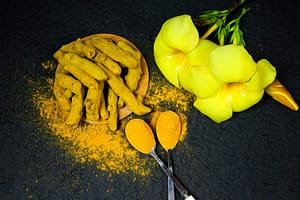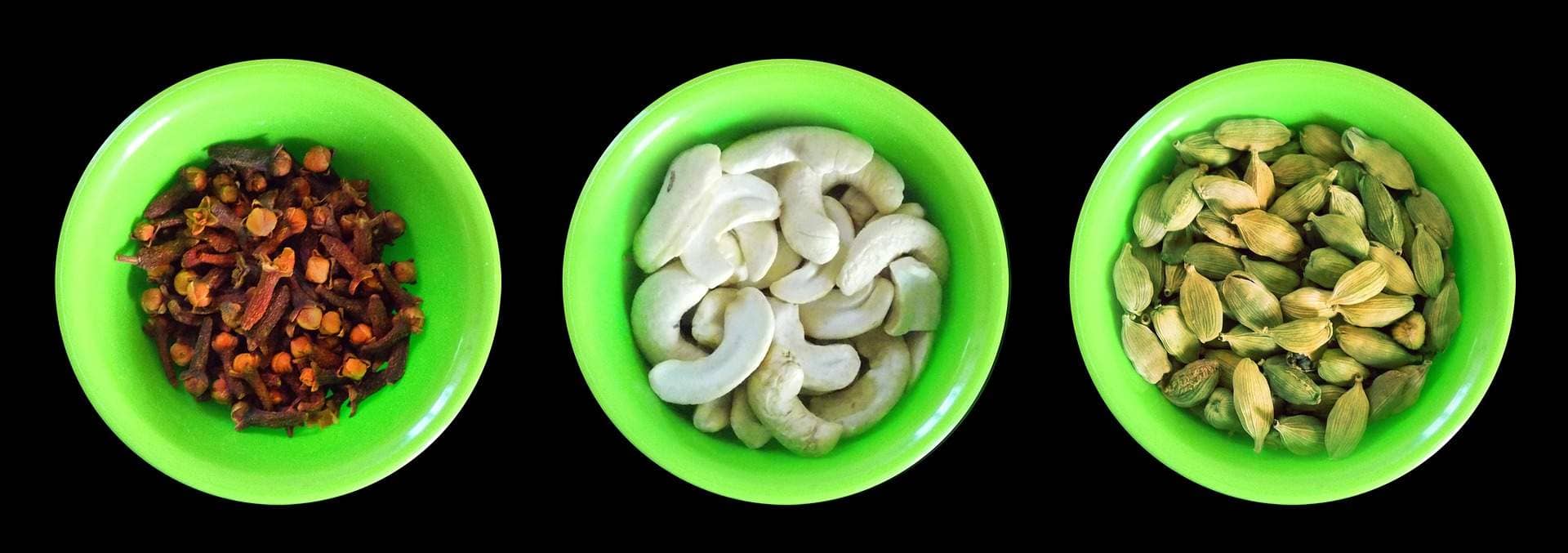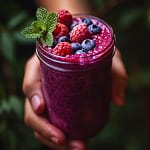The food we consume every day serves not only to fill the stomach or to satisfy the tongue. From the very beginning of its existence, mankind has used food as medicine. Many ancient medical traditions speak of the fact that the choice, combination, and preparation of foods directly affects our health.
You may also like: The Yogic diet: the path to health, natural balance and longevity
[lwptoc min=”4″ numeration=”decimalnested”]
It is ironic that in modern society, something as important as proper nutrition becomes neglected. In the name of comfort or because of the busy rhythm of life, we choose microwave ovens, fast food, instant medicine, and eating “fast.” In Ayurveda, the ancient Indian science of life, health, and longevity, food plays the most important role in maintaining good health and is therefore considered medicine.
Body type determines the way of eating
Ayurveda, which has been around for over 5,000 years, is still highly respected in India today. According to this holistic science, each of us has our own distinct constitution, body type, or prakriti. Prakriti is an individual combination of physical, emotional and mental characteristics, which are determined by the time of a person’s conception and birth.
If this balance is disturbed due to emotional or physical stress, trauma, incorrect selection of food, change of climate or weather, there may be an imbalance in the body, which sooner or later will lead to illness. If we understand how these factors affect our health, we will be able to take certain measures to reduce their effects and remove the cause of the imbalance. In this sense, the path to health is individual for everyone. There is no universal path that suits everyone – neither in diet, nor in lifestyle, nor in exercise, nor in the use of medicinal plants.

Image by Tamanna Rumee from Pixabay
Sankhya, the philosophical basis of Ayurveda, claims that the five elements of water, ether, fire, earth, and air create our universe. Three fundamental principles or doshas—vata, pitta, and kapha—represent these components as they appear in our bodies. Each of us possesses all three doshas, but to different degrees; typically, one or two doshas predominate, while the other one (or several more) are regarded as minor.
We are healthy and our bodies operate correctly when the doshas are in harmony. Disorders of the doshas cause problems with the mind, heart, and body. Air and ether make up the subtle energy known as vata, which is connected to movement. Vata is by definition dry, light, mobile, and chilly.Symptoms of a vata problem include bloating, tremors, asthma, and constipation.
Ama – toxins in your body
A dosha disorder can adversely affect digestion and cause the formation of toxins, or ama. As ama accumulates in the tissues and channels of the body, it slowly but surely affects the flow of prana (vital energy), immunity (odjas) and cell metabolism (tedjas), ultimately resulting in disease. Ayurveda believes that to maintain good health, it is essential to help the body get rid of toxins and restore its original balance of doshas.
This is achieved with the help of a proper diet, which includes the correct selection of foods, their combination and method of preparation, as well as Ayurvedic herbal preparations. The choice depends on the individual needs of the person and the current state of the dosha. Ayurvedic nutrition is a vast subject, which includes individual constitution, the medicinal effects of culinary spices, the principle of shad rasa (six tastes, which must be present in a balanced meal) and much more.
Organically grown, fresh and, if possible, locally grown food is considered the best for health. In Ayurveda, food drinks and spices are classified according to their tastes (sweet, salty, hot, bitter, sour and astringent), according to their effect on the doshas and according to their effect on the tissues after digestion.
You may also like: 4 yoga diet recipes for energy and strength
This is precisely why it is important to know what our original body type is (prakriti) and to choose foods that have opposite properties to those that already dominate in our organism. More than that, understanding the current dosha state is also crucial for proper food choices. The Vata type is physically less developed, mobile, dry and slim.
Digestion in Vata type can be weaker, problems with bloating and constipation are common. For this reason, warm, nutritious, fatty and especially cooked food is recommended for the Vata type.
Vata type should avoid dry, cold and frozen food. Excessive consumption of raw food and fasting are also not recommended. A vata type should avoid beans and chickpeas, which are hard to digest and cause gas.
Sweet, sour and salty flavors have a favorable effect on cotton wool. The Pitta type usually has a good appetite and excellent digestion, but has a tendency towards increased stomach acidity and inflammatory diseases. For this reason, they should avoid fatty, spicy, and too spicy and fermented foods, as well as sour fruits.
Pitta should prefer sweet, bitter and astringent. The Kapha type has a tendency towards excessive weight gain and obesity, has slow digestion and problems with excess mucus in the body. The best for them is a light diet, with a reduced intake of carbohydrates, avoiding dairy products, cold food and sweets. The best for her is astringent, spicy and bitter taste.
The role of spices in food preparation
Before we start talking about the use of spices in food preparation, we should mention that although Ayurvedic nutrition is traditionally associated with India, it is not limited by place and time. For example, not all Indian food is Ayurvedic.
In fact, today in India, excessively spicy food is often prepared, and that too with poor quality oil. What makes food Ayurvedic is the fact that it is selected and prepared according to the needs of a particular person or that it is balanced for all three doshas.

Image by Alongkorn Tengsamut from Pixabay
Many spices used in Ayurvedic cuisine, such as kukruma, cumin, fenugreek, coriander, cardamom, etc., are also medicinal plants that have medicinal properties. Daily use of these spices can drastically improve digestion and absorption of food, stimulate appetite and bowel function, nourish internal organs and prevent dosha imbalance. Spices also give food a harmonious combination of six flavors.
Ayurveda believes that flavors also possess therapeutic properties. Taste is the first thing we feel when we taste food – it is the beginning of digestion. A meal that contains all six flavors is not only pleasant for our tongue, but also better digested and absorbed at the cellular level. Modern research confirms the benefits of using Ayurvedic spices. Turmeric, for example, is very effective in the treatment of diabetes, skin diseases, liver diseases and various inflammations.
Cumin, coriander, fennel, cardamom and nutmeg are good at treating a whole range of digestive problems. Ginger also has a very broad medicinal effect. There are literally thousands of ways to use these medicinal spices.
Dish blending
Another aspect of the Ayurvedic diet is combining foods. Not all foods are compatible. Some foods, when eaten or cooked together, will disrupt the digestive function and cause ama (toxins) to accumulate in the body. The correct combination of food is influenced by many factors, for example, the taste of the food, its quality, the effect on the doshas, the time required for their digestion, etc.
For example, hard-to-digest foods like grains, dairy products, and foods that contain a lot of starch are not combined with easy-to-digest foods like fruits. Milk is not combined with sour fruit, because then it starts to curdle and becomes difficult to digest. Ayurveda advises that we take responsibility for our health as much as we can by making changes in our diet and lifestyle.
The food we eat every day is our greatest ally in maintaining or restoring good health. A proper daily diet will provide good support for all other therapeutic measures. Let food be your medicine. And may you not need any other medicines!
More for research!
What Is the Ayurvedic Diet? Benefits, Downsides, and More by healthline.com




